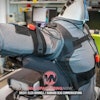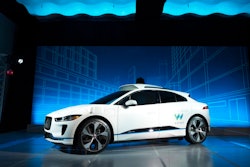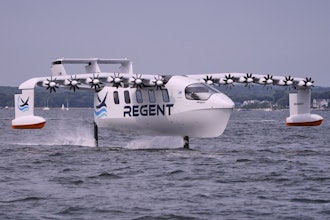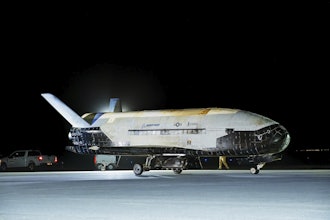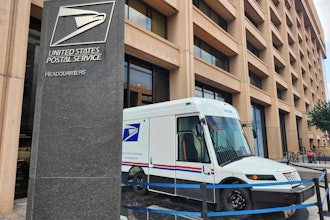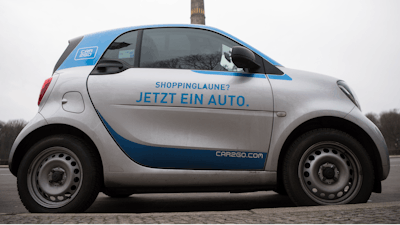
FRANKFURT, Germany (AP) — Automakers Daimler and BMW have agreed to merge their transportation services businesses so they can expand offerings in ride-hailing apps, car-sharing, parking, and charging electric cars.
The two companies said Wednesday they aim to become a "leading provider" of new ways to get around cities, where more people will see cars as a service they use when needed.
Those businesses include car-sharing, an area where Stuttgart-based Daimler AG operates its car2go service and Munich-headquartered BMW AG has DriveNow. Customers use a smartphone app to find and unlock cars parked on city streets and use them for short periods when needed.
Also part of the deal is Daimler's moovel startup, which allows users to book and pay for trains, cars, taxis and rental bikes. BMW's digital parking service enables ticketless, cashless on-street parking and helps uses find spaces in garages.
The combined business would also offer charging services for battery-powered cars. So far electric cars have only a small market share due to higher cost, limited range and lack of places to charge. Once electrics become as cheap or cheaper than conventional cars, their market share could expand quickly, and with it the demand for charging.
The 50-50 joint venture requires approval from anti-trust authorities. The companies did not say what its name, headquarters, annual revenue would be, or what executives would run it.
Auto companies are developing services businesses to fend off competition from industry outsiders such as Uber and Lyft. Volkswagen has set up services company Moia, aiming to develop and offer on-demand mobility; General Motors is operating its Maven car-sharing app.
"As pioneers in automotive engineering, we will not leave the task of shaping future urban mobility to others," Daimler CEO Dieter Zetsche said in a statement. "There will be more people than ever before without a car who will still want to be extremely mobile. We want to combine our expertise and experience to develop a unique, sustainable ecosystem for urban mobility."


